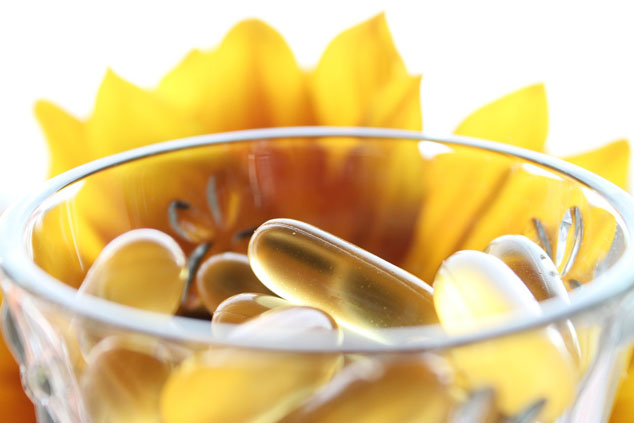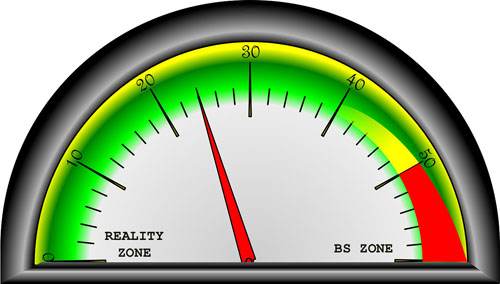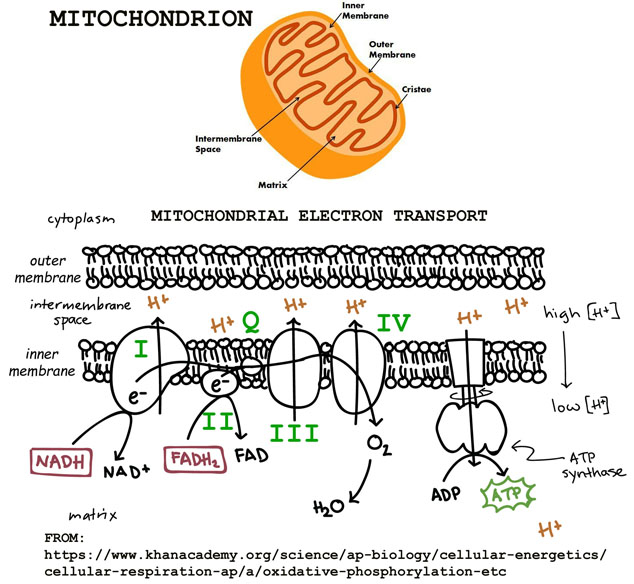 Anti-aging supplements are great – if you’re a tiny worm, a fruit fly, or a lab rodent. If you’re human? Ah, now THAT’s where we’re on thin ice.
Anti-aging supplements are great – if you’re a tiny worm, a fruit fly, or a lab rodent. If you’re human? Ah, now THAT’s where we’re on thin ice.
The good news is, we ‘mature’ folks have more choices than ever for so-called ‘anti-aging’ supplements.
Every manufacturer is screaming for attention to their products – sometimes literally, if you’ve seen any of their hopped-up videos.
The bad news is, it’s a land of red flags, where it’s super important to have a good BS detector to see what’s real and what’s not.
BEFORE READING ON … ARE YOU, LIKE ME, A SENIOR WHO’S INTERESTED IN STAYING HEALTHY FOR YEARS TO COME? IF SO, YOU MIGHT LIKE TO SEE WHAT A SCIENTIST (ME) HAS TO SAY ABOUT HOW TO ACHIEVE IT AT NO EXTRA COST TO YOU, WITHOUT EVEN HAVING TO LEAVE HOME, STARTING HERE: HEALTHY AGING NATURALLY.
In Favor of Supplements
Let me say from the outset that I take plenty of supplements. So I’m not against them in principle.
Listing them all, and explaining why I take them, would be a long story. So for now I’ll just point out that what I take is based of careful analysis of the research literature. And there’s a ton of it – some of which is pretty good. (And some not.)
Now why am I yammering on about anti-aging supplements?
Very glad you asked.
It’s personal.
So let’s get started.
What About Those Worms & Friends vs. Us?
This might be the most glaring issue regarding longevity studies.
Anti-aging research using those non-human animals mentioned above entail designing a treatment protocol, with controls, and testing how it affects lifespan.
Such studies work best when lifespans are only a few weeks or months – as with nematodes (microscopic worms), fruit flies, and rats.
They have a built-in end point – lifespan – within a relatively short amount of time.
Ideally, an experimental study might take 8-12 weeks. Then the animals die. Comparing lifespans between treatment and control groups is the gold standard for assessing treatment effects.
Doing so presents a likely scenario where we can imply that the treatment causes an effect.
However, as one of my former colleagues was fond of saying,
“Applying the results of studies on non-human subjects to mean something for humans is like taking a leap of faith equivalent to jumping over the Grand Canyon.”
No matter how much we share our physiology or genetics with lab organisms, we are still WAY different in significant ways.
Why we use lab organisms in the first place, instead of ourselves, is because we live too long for conducting similar experimental studies.
(Not to mention ethical considerations … that’s always a challenge.)
What do we have in the absence of such experimentation?
Observations.
Something like this: People who take [fill in the blank supplement] live longer than people who don’t.
There’s no experiment for comparing a treatment vs. a control group.
It’s what we call a correlation study.
Now every biostatistician worth her salt knows better than to confuse correlation with causation.
So, as far as human longevity goes, all we have are observations, correlations, and associations.
No matter that we may have tens of thousands data points. It’s still observational correlations.
This is even true of the largest continual survey program on health in the U.S., the NHANES study.
It’s comprised of thousands of surveys, taken over decades. Surveys are by their nature observational studies.
An example survey might find that people who have higher vitamin D levels live longer than those with lower levels.
This does not mean higher vitamin D levels lead to longer lifespans.
However, supplement marketers want you to get your exercise by jumping to that inappropriate conclusion, without knowing for certain whether it’s true.
Major BS as I See It
The single most important aspect of health impacting your healthspan (i.e., healthy lifespan) is your energy metabolism.
When it’s optimal, you’ll be healthy in every way possible.
When it’s dysfunctional, you’re on a slippery slope, accelerating toward a sicker, shorter lifespan.
accelerated aging and all major diseases.
I hope I’m not being too wishy-washy for you … healthy energy metabolism is simply the bee’s knees for health and longevity.
The best anti-aging supplements therefore focus on how their ingredients boost energy metabolism at the cellular level.
The worst ones gloss over it or fail to mention it at all.
Focus on Energy
The nutrition world is all agog about energy. Specifically, the focus on energy means making your little cellular powerhouses – aka, mitochondria – work better.
Top supplements address mitochondrial health, first and foremost. Other ‘anti-aging’ supplements not so much. This is where a good BS detector is your friend.

If marketing information about anti-aging supplements doesn’t mention mitochondria, your BS detector should head into the red zone.
Anti-Aging Supplements for Energy Metabolism
“Energy” is a pretty namby-pamby term.
It’s especially undermined by ‘fake’ energy supplements – such as those containing caffeine or similar nerve stimulants. (Ditto for ‘energy’ drinks.)
Nerve stimulants do nothing for mitochondrial energy metabolism.
So I’m going to go hard-core here on what real metabolic energy means.
As an old-time biologist, I want to start you on the path for finding good anti-aging supplements. In my mind, this means starting with a little introduction to how mitochondria work. (If any of this is vaguely familiar from a prior class in biology, then consider it a mini-review of what you once knew for passing the exam over it.)
This diagram is a good start:

All truly good anti-aging supplements should start working right there.
What we’re seeing in the diagram is what’s called the electron transport chain – so named because that’s where bioelectron energy peaks out.
Bioelectron energy is the key form of energy running your body.
BS DETECTOR WARNING: ‘Energy’ claims about supplements often focus on calories. Unfortunately, caloric energy is all heat. And we don’t metabolize heat. Saying we do is simple-minded and scientifically inaccurate.
So how can you boost your mitochondrial energy function right where all the action is – at the electron transport chain?
The head of the chain starts with NADH giving up an electron to get the chain started. In so doing, it forms NAD+.
Skipping down the chain a bit, note that the final electron transfer step reduces oxygen to generate metabolic water.
Along the way, bioelectron energy drives out protons (H+) from the interior matrix of the mitochondria. This process forms a proton gradient that leaks back through ATPase. ATPase is the rotating motor whose role is to drive the synthesis of ATP.
ATPase is the world’s smallest biological motor. All life depends on it. Health ensues when it spins fast enough (thousands of rpm). Disease ensues when it doesn’t.
Now note the four electron transport complexes in the image above, cleverly labeled I-IV in green text.
Note also the “Q” between complexes II and III. It stands for CoQ10, which means CoQ10 is also an electron transport molecule participating in mitochondrial energy metabolism.
SUMMARY: The best anti-aging supplements have the most potential for boosting mitochondrial energy metabolism between NADH/NAD+ and ATP synthesis.
Silliness vs. Sensibility
One of the silliest supplements I ever encountered was an ATP supplement. This is a highly unstable molecule. Your body makes about half your body weight in ATP every day, just to maintain useful levels. Taking it as a supplement isn’t going to change any of that.
On the other end, at the beginning of the electron transport chain, is another target for boosting energy metabolism.
It entails boosting NADH/NAD+ levels. At least this one makes since on the surface of it.
It depends on the old tried-and-true concept of ‘more is better’.
This target is one of the most intensely studied and heavily marketed anti-aging supplements out there at the moment. And its scientific backing is impressive.
The company behind it, Elysium Health, provides a basic product for that purpose – brilliantly named ‘Basic‘ – for the low price of ‘only’ $60 for a month’s supply.
Unfortunately, it has a key flaw not acknowledged by the company. It’s that the ‘more is better’ concept doesn’t really apply, since the metabolic function of NADH/NAD+ depends on the ratio between the two. It’s a highly controlled ratio that depends on moment-to-moment energy demands. In other words, there is no one-size-fits-all way to regulate the ratio by just taking more of these ingredients.
Besides, NAD+ isn’t really a supplement. It must be formed from a precursor supplement.
However, one of the other natural electron transporters can be a useful supplement. It’s the CoQ10 (‘Q’) between complexes II and III.
Indeed, CoQ10 supplements are some of the most helpful of all the anti-aging supplements because of CoQ10’s direct role in mitochondrial energy metabolism.
You still have to know what you’re doing, since not all supplements are equally good. That’s why I explored the ins and outs of CoQ10 supplementation in a previous post, here: CoQ10 Benefits: The Superhero Anti-Aging Nutrient for Your Brain and Heart! (Maybe).
What about other mitochondrial electron transporters?
Fortunately, as for the protein complexes in the diagram above (i.e., I-IV and ATP synthase), nobody has yet suggested taking these as supplements.
Good … that would be monumentally idiotic.
Nevertheless, there is one type of redox molecule that does address mitochondrial energy metabolism directly, even though it’s not a natural electron transporter.
It’s called methylene blue. Its benefits rest on how it intercalates itself between complexes I and IV in the electron transport chain. Benefits there arises when complexes I-III aren’t working as efficiently as they should. This is a BIG problem that puts a cabosh on energy metabolism.
Methylene blue makes up for damaged electron transport complexes by bypassing them! One great result is the enhanced efficiency of oxygen uptake to create metabolic water.
This has become a darling of the mitochondrial energy crowd. This earlier post gives you more details as to why: Anti-Aging Supplements – Hitting the Wayback Machine.
A Couple More Good Ideas
Since this whole topic of anti-aging supplements is so gigantic, I’ll keep this post down to a dull roar with just these two more suggestions.
Photobiomodulation
What a piece of jargon, eh?
This is simply a term coined by scientists – those jokers! – to mean ‘using light to alter biology’.
Specifically for mitochondrial energy, we’re talking about near-infrared (NIR) light. It actually invigorates the activity of complex IV in the electron transport chain – directly.
It’s not really a supplement you take. It’s one you absorb. In fact, plenty of companies provide NIR light devices for healing. And plenty of clinics offer red light therapies. Saunas come to mind.
However, as I describe in that linked article about methylene blue above, NIR light is totally free!
It’s the most abundant portion of the solar spectrum
In addition to MB being pretty cheap, red/NIR doesn’t cost anything at all!
Of course, you could get either a pricey red laser device for use at home, or expensive medical treatments using it (which may or may not be covered by insurance).
Or, you could simply go out in the sunshine. The red/infrared portion of sunshine occurs all day, from morning ’til evening.
In fact, it’s the most abundant portion of the solar spectrum – ca. 42% of the solar spectrum, even on cloudy days.
So, at this point, I’m jumping ahead to say this:
The combination of methylene blue and NIR from sunshine is not just a super-duper boost to mitochondrial energy metabolism for anti-aging.
It also seems to be the best up-and-coming treatment for the prevention of all cancers and all dementias.
Wowser!
My Perspective on ‘Anti-Aging’
The following reflects my free-association style of thinking.
So, in short, welcome to my brain.
The Concept of Anti-Aging
Being ‘against aging’ just seems weird to me. A better goal is longevity – i.e., actual lifespan.
Even better is a concept I refer to as healthspan. It’s more than just living longer. It’s living longer in good health.
Unfortunately, we’re stuck with the concept of ‘anti-aging’. In fact, a Google search on “anti-aging” (in quotes) yields ca. 173 million pages mentioning it. Most of the top results are about wrinkle creams and other cosmetics for creating youthful-looking skin.
Cosmetics aren’t really about anti-aging. Nor are they about increasing healthspans.
They’re just a huge industry catering to people’s desire to look younger.
By the way, as far as I can tell, the vast majority of them are just plain crapola.
The ‘anti-aging’ moniker also pervades organizations such as the American Academy of Anti Aging Medicine. It’s not really about anti-aging, though. It’s mostly about research on what it takes to increase longevity.
Ditto for the more aptly named Methulelah Foundation.
Such organizations have taken a deep dive into health research for boosting longevity. As such, they have little to say about anti-aging supplements.
OK … that’s it for my little diatribe on the semantics of anti-aging.
I feel much better now, thanks.
Substitutes for Healthspan
This is where the vast majority of anti-aging supplements come to play.
What it means is that, in the absence of knowing your healthspan with any certainty, they claim their ingredients will make you healthier.
This is a simple concept, if you think about it.
One example might go like this:
Supplementing with CoQ10 boosts your heart health. (Implication: better heart health means longer healthspan.)
The assumption is that anything you do to be healthier will help you live longer. It’s probably a good assumption.
Ultimately, however, there’s no real substitute for healthspan.
You will never know with certainty how long you’ll live, or how healthy you’ll be when you cross over to the the next plane of existence – until you get there.
All the best in natural health,

Statements on this page have not been evaluated by the Food and Drug Administration. Information here is not is not intended to diagnose, treat, cure, or prevent any disease.
I may receive a commission for purchases made through those links.
This doesn’t change the cost to you.
Hi Dennis,
I’m looking for dry eye cures! Any suggestions?
Thx,
Nancy
Hey, Nancy…
Yes, my ‘go-to’ source of a lot of natural approaches to health is Dr. Josh Axe. His site provides this article that should give you some good ideas: https://draxe.com/health/dry-eye-syndrome/
Give me a holler if you have any more questions about it. This seems to be one of those issues that crops up once in a while.
Cheers,
Dennis